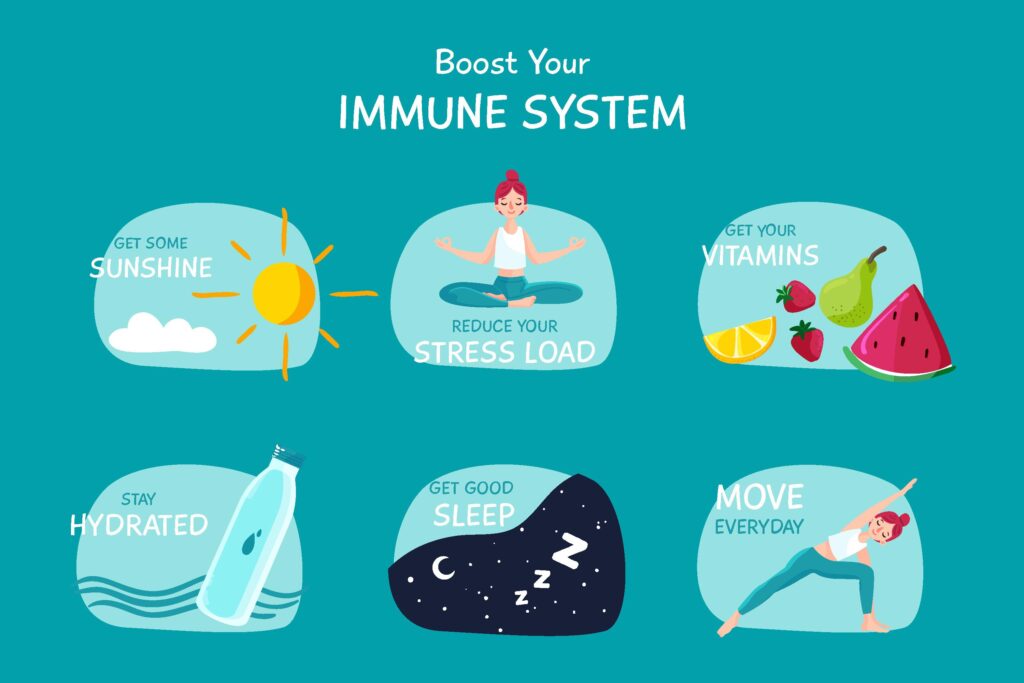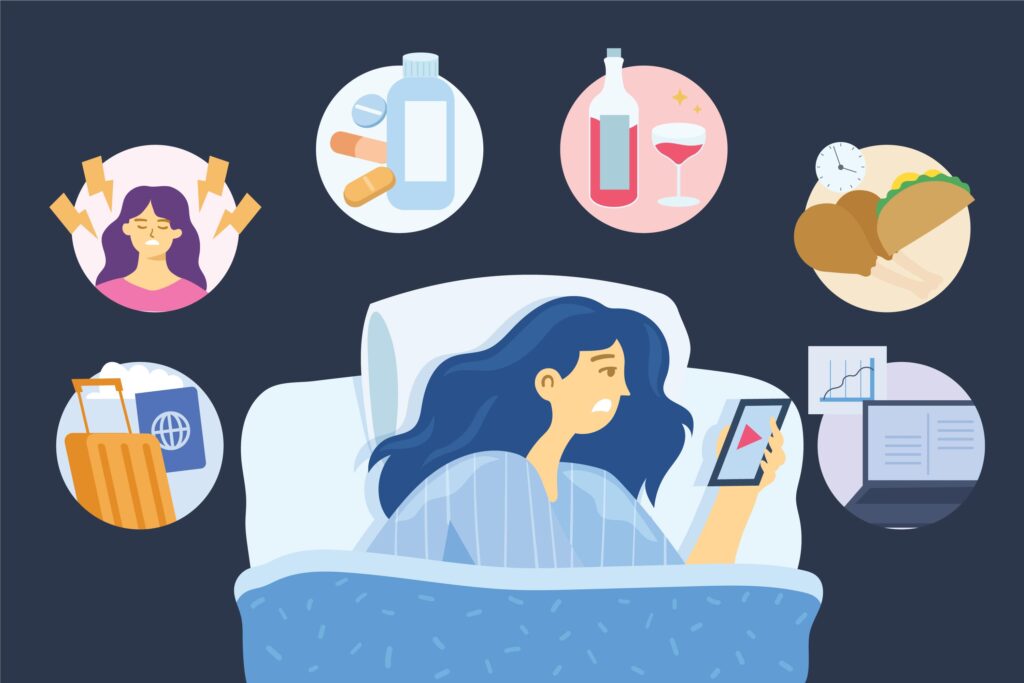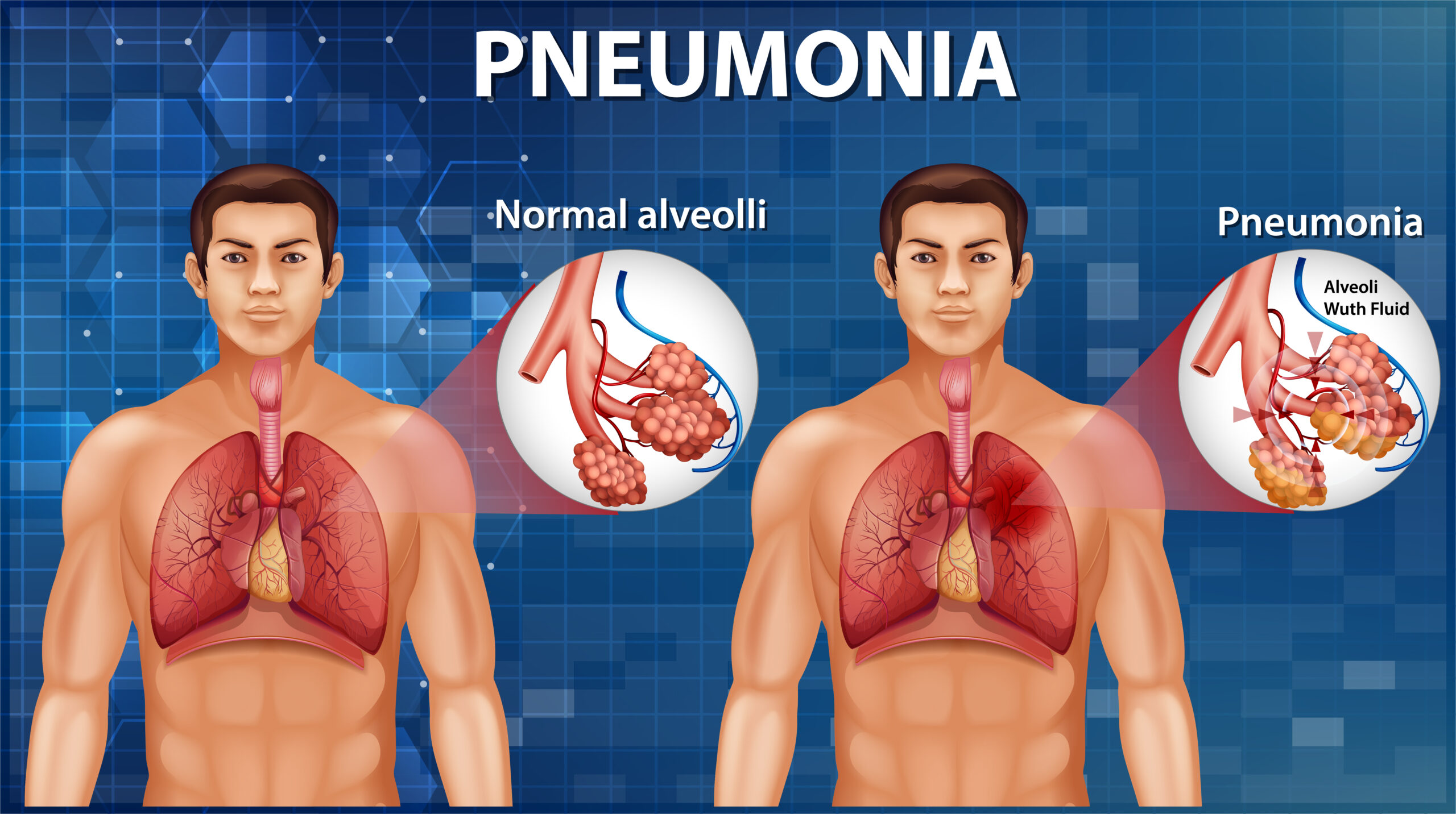In today’s fast-paced world, sleep often takes a backseat to work, social activities, and screen time. However, the importance of sleep for overall health cannot be overstated, particularly when it comes to the immune system. A strong immune system is essential for fighting off infections and staying healthy, and adequate sleep plays a crucial role in maintaining this defense mechanism.
Table of Contents
How Sleep Affects the Immune System

Sleep is a vital period during which the body undergoes repair and regeneration. During sleep, the immune system releases cytokines, proteins that help regulate immune responses. These cytokines are essential in responding to infections, inflammation, and stress. When you don’t get enough sleep, your body produces fewer protective cytokines, making it more difficult to fend off infections.
Moreover, sleep also enhances the performance of T-cells, which are a type of white blood cell critical for the immune response. T-cells identify and destroy infected cells in the body, and research has shown that their activity is significantly improved during sleep. Without sufficient sleep, the effectiveness of T-cells decreases, leaving the body more vulnerable to infections and diseases.
The Impact of Sleep Deprivation on Immune Health

Prolonged sleep deprivation can impair immunity, making common ailments like the flu and colds more likely to strike. Research indicates that those who regularly get less than six hours of sleep per night are more susceptible to colds than those who get seven or more hours. Furthermore, sleep deprivation can worsen pre-existing medical issues and hinder the body’s ability to recuperate from sickness.
Lack of sleep also has an impact on how well the body’s defenses are balanced. For example, it may result in a rise in the synthesis of stress chemicals such as cortisol, which may impair immunological response. This suppression over time may result in chronic inflammation, which has been related to a number of illnesses, including diabetes, cancer, and heart disease.
Tips for Improving Sleep Quality
Prioritizing good sleep hygiene is crucial since sleep plays a crucial role in immune system function. The following advice can help you get better quality sleep:
1-Keep a Regular Sleep Schedule: Your body’s internal clock is regulated when you go to bed and wake up at the same time every day, including on weekends. This makes it simpler to fall asleep and wake up.
2-Establish a Calm Bedtime Routine: Read a book, take a warm bath, or practice meditation before going to bed to unwind. This assists in letting your body know when it’s time to relax.
3-Minimize Screen Time Before Bed: The hormone melatonin, which controls sleep, can be disrupted by the blue light that smartphones, tablets, and laptops generate. At least one hour before going to bed, try to avoid using screens.
4-Watch Your Nutrition: Since they can cause sleep disturbances, large meals, coffee, and alcohol should be avoided just before bed. If necessary, choose a small snack instead.
5-Create a Sleep-Friendly Bedroom: Make sure the space where you sleep is comfortable for slumber. This entails having a cool room with comfy cushions and mattresses as well as less light and noise.
FAQs
. How much sleep do I need for a healthy immune system?
Can lack of sleep really make me sick?
What are some signs that my sleep is affecting my immune system?
How does sleep improve immune function?
Can improving sleep habits boost my immune system?
How does stress affect sleep and immune health?
CONCLUSION:
Making sleep a priority is one of the finest things you can do for your general health and immune system. Not only does getting enough sleep every night boost your immune system, but it also lowers your chance of developing a number of diseases. Understanding and putting into practice excellent sleep hygiene may significantly improve your well-being in today’s health-conscious society.
Not only is sleep a luxury, but it is also essential for a robust and resilient immune system. Your body will appreciate you for prioritizing sleep by becoming healthier and having more energy.
OTHER REASEARCH OF OTHER WRITThttps://www.sleepfoundation.org/physical-health/how-sleep-affects-immunity#:~:text=Sleep%20is%20an%20important%20period,the%20immune%20system%20rev%20up.ERS:
FOR MORE ARTICLE PLEASE CLICK THIS LINK:https://international-health-fitness.com/understanding-monkeypox-a-comprehensive-guide/







Your insights into how quality sleep enhances our body’s defenses are both enlightening and practical
Great Article. This is so important, especially during cold and flu season. Thanks for sharing the importance of sleep for immune health.
How someone can explain in that way😍 really impressive.
Thanks for sharing such great articles 😊
That’s really informative Thanks😍